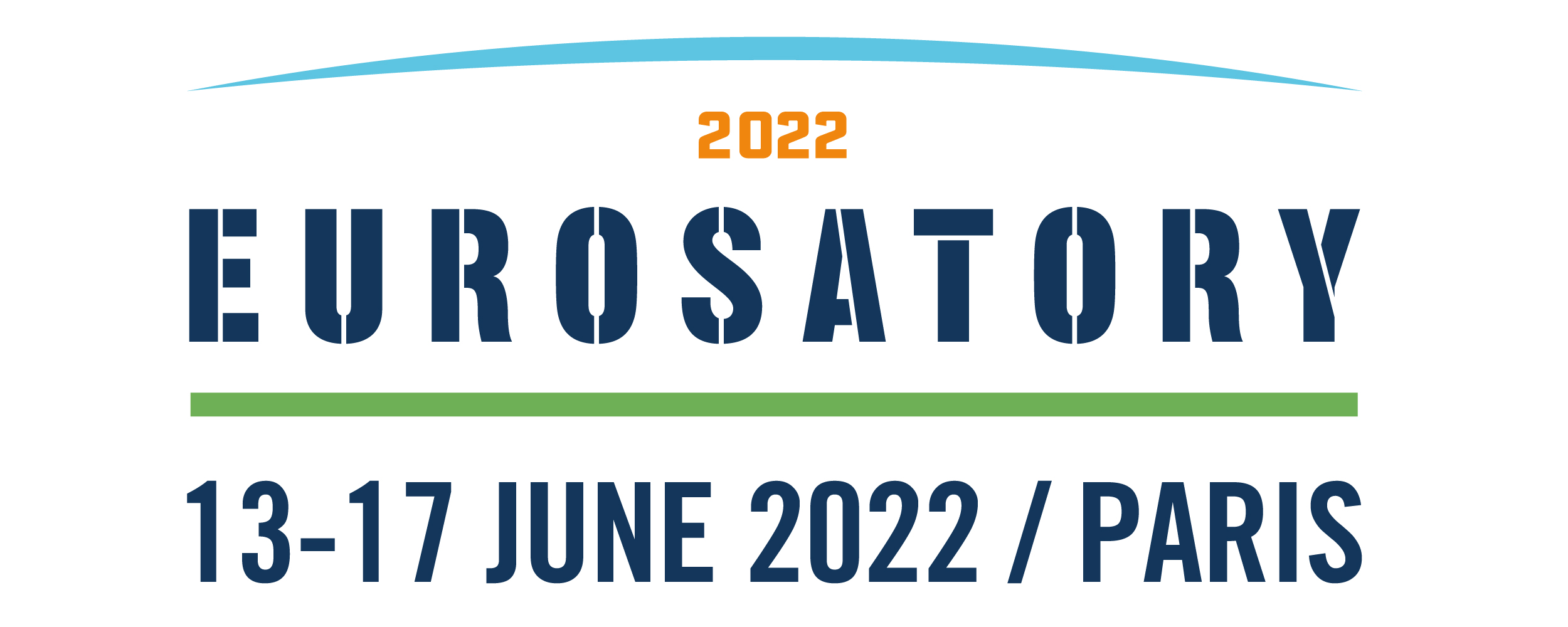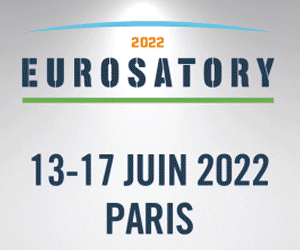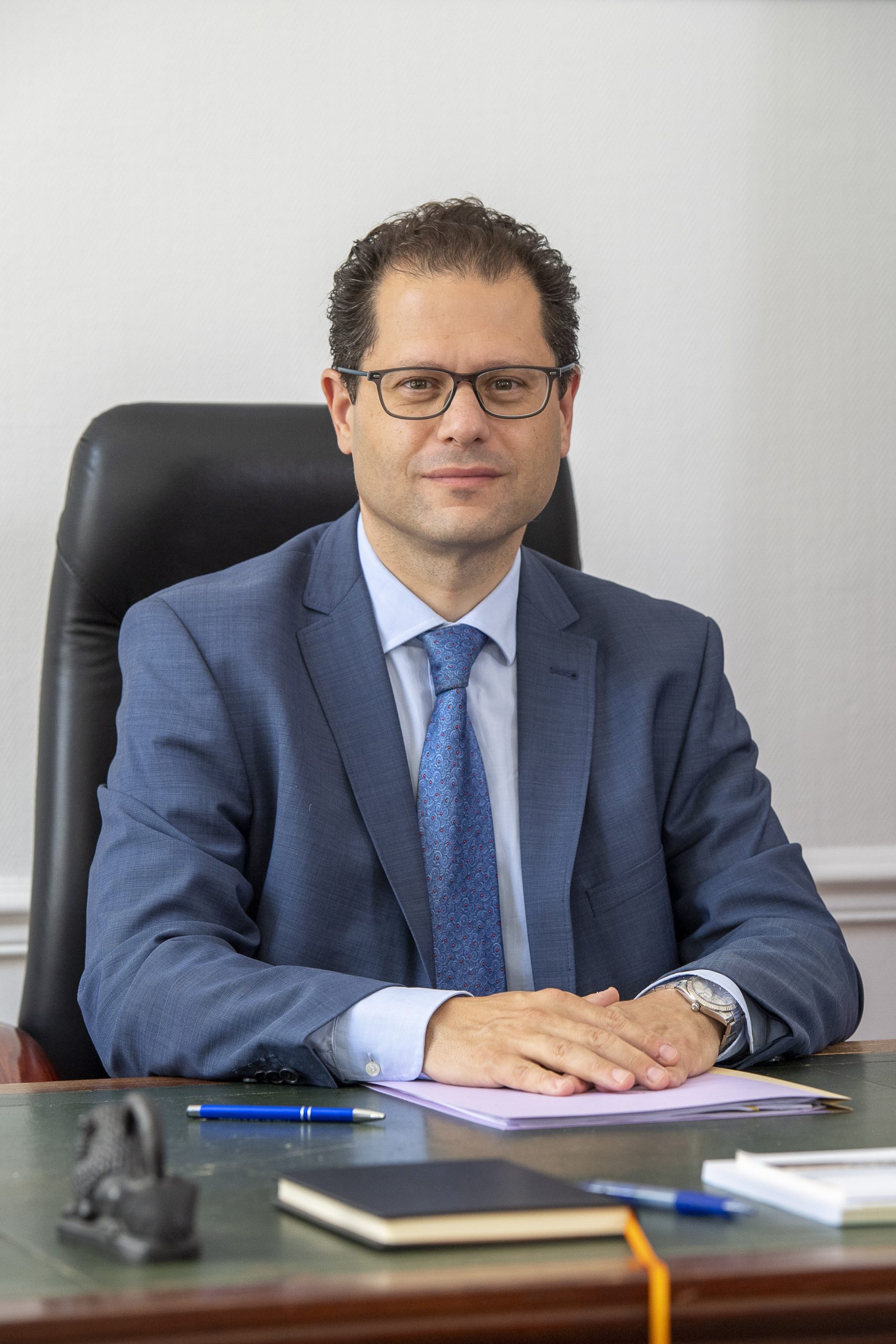Prefect Ziad Khoury, national coordinator for the security of the 2024 Olympic and Paralympic Games and major international sporting events, gave an exclusive interview to the Eurosatory 2022 Show Daily on the three challenges of the 2024 Olympic Games in France.
With a long-duration event like the 2024 Olympic & Paralympic Games, an estimated attendance of 13 million spectators and the presence of a very large number of VIPs, how to balance the imperatives of security with the ambitions of a public celebration while preserving civil liberties?
The 2024 Olympic and Paralympic Games will not only be a sporting competition unprecedented in its scope and density. They constitute a total event for the whole country, whose positive impacts must be maximized, both at the time and in the longer term.
There are multiple impacts in sport, health, culture, industry, tourism, but also with respect to the country’s infrastructure and equipment, including in terms of security. In this regard, the Games serve as a timeframe and a lever for action, within a movement already well under way, which is part of a desire for moderation, particularly in environmental terms, and ethics, in particular in the proportionality of the resources to be mobilized and the legal framework in which they exist.
More generally, our Olympic and Paralympic Games must be an opportunity to demonstrate our know-how, promote the image of France which will be the centre of attention of the whole world, and a unifying collective momentum. In addition, the Paris 2024 Games are part of an unprecedented succession of major events during a one-year period, which will begin with the Rugby World Cup in September and October 2023 and continue with the Olympic torch relay from April 2024.
In this perspective, Team France is already actively at work through the State, local authorities and the organizer, and, within the government, through the inter-ministerial delegate for the Olympic Games and Paralympics, under the authority of the Prime Minister. The national organization for the security of the Olympic and Paralympic Games that I head, under the authority of the Minister of the Interior, also works on behalf of the inter-ministerial delegate. This organization provides inputs to staff from the ministry and its partners on all safety and security issues, in a rigorous logic of anticipation and consistency.
These issues are at the heart of the preparatory work in order to organize a popular and festive event, in optimal conditions of trust and security. The challenge is naturally complex, and is part of an environment that necessarily includes, today, an element of the unknown. But this objective, which therefore represents an unprecedented challenge, is all the more eagerly anticipated after the Tokyo and Beijing Games, which were held under special conditions.
The complexity of risks and threats is growing. How does the fact that the Olympics are taking place for the first time in an urban environment and not in a stadium further complicate this grid of risks and threats? Given the need for thousands of personnel and the difficulty of having backup personnel, how do you plan to manage this problem?
Security of the Games is at stake in all areas: on the ground of course, but also in the air, at sea and in the digital domain, the latter having the particularity of being largely immaterial and borderless. We have already initiated a dynamic process of exhaustive risk analysis, on the one hand, with associated scenarios and responses, and on the other hand, of increasingly regular analysis of the threat status, as indicated by the Olympic intelligence centre in liaison with all the intelligence services. This centre is already active and will ramp up by the Olympic period, when it will operate permanently.
The 2024 Games can logically produce their own set of risks, linked to the conditions in which they take place, which are identified and taken into account, and can naturally attract exogenous threats, due to their wide audience. In this context, no problem is overlooked, but five subjects are the focus for particular attention:
- the proper management of the various flows and spectator gatherings, of course, in a context of high geographical and temporal density of events, some of which will be outside sports arenas, particularly in the centre of Paris;
- the terrorist risk, which will no doubt remain high in 2024 and which forms part of the core of organizational planning;
- the cyber threat, which calls for an integrated response from the Games ecosystem, with the ongoing implementation of an inter-ministerial strategic plan, audits, preventive actions, testing and resilience building;
- air safety, in particular against drones, for which priorities and resources have already been largely defined, in conjunction with the Minister for the Armed Forces;
- the effectiveness of the chain of command, including new technologies and equipment upgrades. A national strategic command centre will be set up at the Ministry of the Interior, with a build-up in activity starting at the Rugby World Cup.
The security of the Games will be an exceptional illustration of the security continuum and of a form of co-production, under the aegis of the State. The latter has begun work to mobilize the maximum of its internal security forces, in line with the unprecedented requirements of the event. Several levers for action are being examined, such as the management of vacations and summer missions, school outings, the expansion of the number of reservists or the optimized use of these forces. Other State resources, apart from the Ministry of the Interior, will be called upon at an increased level, as well as those of local authorities (municipal police) and transport operators.
You were a precursor in the cooperation with private security at the Euro 2016 football tournament: what progress have you made since then? The French security team is in the process of being set up and, given the magnitude of the task, what is the state of play today?
The private security sector will play an essential role, according to the usual sharing of skills with the organizers, as specified for the Games in a protocol signed in January 2021. This means that the sector, working closely with the organizers, must show not only a desire to become involved, which has already been demonstrated, but also to establish the conditions for increased job appeal. The State, through a comprehensive and proactive agenda in this area, is seeking to stimulate a strategy both for mobilizing — and expanding — the potential pool of professional card holders.
This is why, in view of the Games, it is creating a professional qualification dedicated to event security, as well as other mobilizing actions with employment agencies as well as the French private security authority (CNAPS) and the various stakeholders in and around this professional sector. The private security sector was not able to sufficiently capitalize on the experience of Euro 2016, but the shared objective for the Games is that it responds to the challenge and seizes the opportunity to move forward.
With regard more broadly to manufacturers and service providers in the field of security, a deeper, more structured dialogue is ongoing with the Ministry of the Interior, in particular thanks to GICAT, for the Games as well as more generally, based on increased financial resources. Technological experiments are underway, priorities and needs have already been determined, choices have been made and will continue to be made, while ensuring that systems are sufficiently mature and proportional to the need. In this area as in the others, the state of mind and progress are very positive, according to the philosophy of a French team which will seek collective victories. A French model of security is one of the areas for which the Games must be a showcase and leave a legacy.
By Murielle Laird









